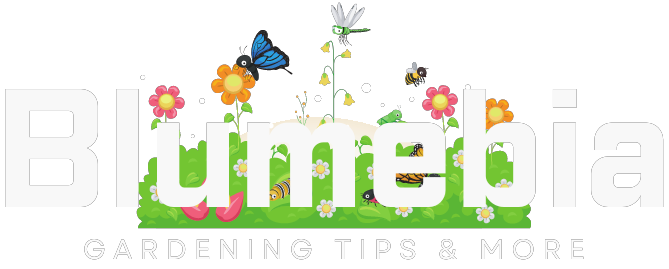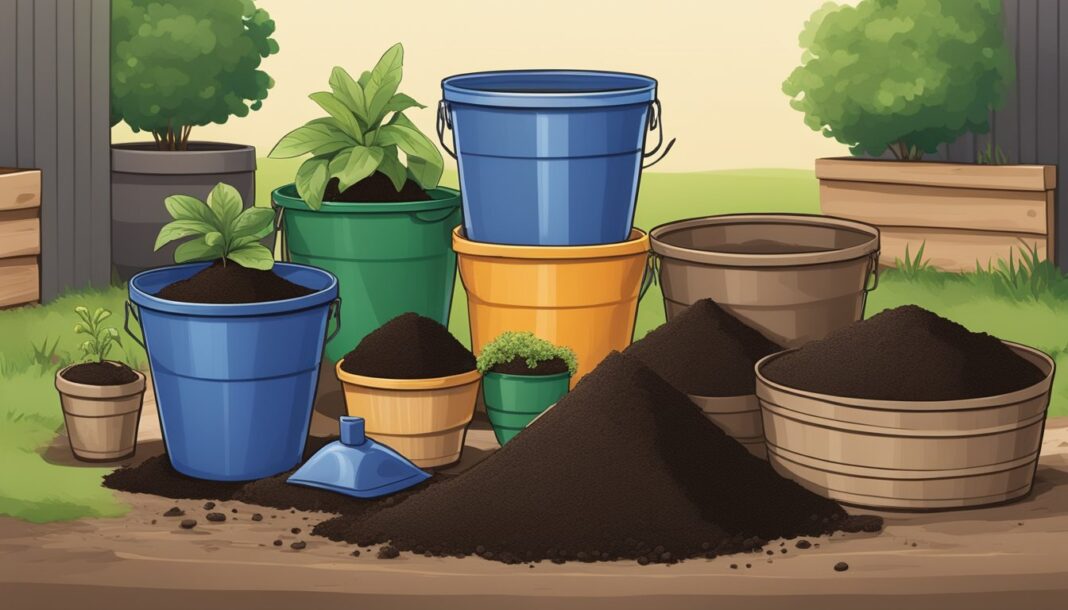Choosing the right soil for container gardening can make or break your plants’ health and productivity. Container plants have unique needs compared to those grown in the ground. The best soil for containers is lightweight, well-draining, and nutrient-rich.
Your container soil mix should retain enough moisture to keep roots hydrated while allowing excess water to drain freely. A quality potting mix typically contains peat moss or coconut coir for water retention, perlite or vermiculite for drainage, and compost for nutrients.
Avoid using garden soil in containers as it’s too heavy and dense. Instead, opt for commercial potting mixes or create your own blend tailored to your plants’ specific needs. With the right soil, you’ll set your container garden up for success from the start.
Understanding Container Gardening
Container gardening offers flexibility and accessibility for growing plants in limited spaces. It allows you to cultivate a variety of plants regardless of your available outdoor area.
Benefits of Using Containers
Container gardening provides numerous advantages. You can easily move plants to optimal locations for sunlight or protection from harsh weather. This flexibility extends the growing season and allows you to adapt to changing conditions.
Containers offer better control over soil quality and drainage. You can tailor soil mixes to specific plant needs, ensuring optimal growth.
Pest management becomes simpler in containers. You can isolate affected plants quickly, preventing the spread of diseases or pests.
Considerations for Container Selection
Choosing the right container is crucial for successful container gardening. Size matters – larger containers retain moisture better and provide more room for root growth.
Material choice affects water retention and temperature regulation. Plastic containers are lightweight and retain moisture well. Terracotta pots are porous, allowing better air circulation but requiring more frequent watering.
Ensure proper drainage holes in your containers. This prevents waterlogging and root rot, which can be detrimental to plant health.
Consider the aesthetics of your containers. Choose colors and styles that complement your space and the plants you’re growing.
Properties of Ideal Container Soils
Ideal container soils possess specific characteristics that promote healthy plant growth. These properties ensure plants receive proper nutrition, hydration, and root support in confined spaces.
Drainage and Aeration
Well-draining soil is crucial for container plants. It prevents water from pooling around roots, which can lead to rot. Ideal container soil allows excess water to flow freely through drainage holes.
Good aeration is equally important. It provides oxygen to plant roots, essential for respiration and nutrient uptake. Soil with proper air pockets supports root growth and prevents compaction.
To achieve optimal drainage and aeration, use a mix of ingredients. Perlite, vermiculite, and coarse sand are excellent additions. These materials create air spaces and improve water movement through the soil.
Water Retention
While drainage is vital, container soils must also retain enough moisture for plant roots. This balance ensures plants don’t dry out quickly between waterings.
Organic matter like peat moss or coconut coir enhances water retention. These materials absorb and hold moisture, releasing it gradually to plant roots.
The ideal container soil maintains consistent moisture levels. It should feel slightly damp to the touch, not waterlogged or bone dry. This moisture balance supports continuous nutrient uptake and plant growth.
Nutrient Content
Container soils need to provide essential nutrients for plant growth. Unlike garden soil, potting mixes often include pre-mixed fertilizers to support initial plant development.
Look for soils with a balanced NPK ratio. This provides nitrogen for leaf growth, phosphorus for root development, and potassium for overall plant health.
Organic matter in the soil also contributes to nutrient content. It slowly decomposes, releasing nutrients over time. This process helps maintain fertility throughout the growing season.
Consider using slow-release fertilizers in your container soil. These provide a steady supply of nutrients, reducing the need for frequent fertilization.
Recommended Soil Types for Containers
Choosing the right soil is crucial for successful container gardening. The ideal mix provides proper drainage, aeration, and nutrients for your plants to thrive.
All-Purpose Potting Mix
All-purpose potting mix is a versatile option suitable for most container plants. It typically contains a blend of peat moss, perlite, and vermiculite. This combination offers excellent water retention and drainage.
Look for mixes that include slow-release fertilizers for added nutrients. These pre-fertilized options can sustain your plants for several months.
Avoid using garden soil in containers, as it’s too heavy and may contain pathogens. All-purpose potting mix is sterile and lightweight, perfect for container use.
Specialty Mixes
Some plants require specific soil conditions to thrive. Cacti and succulents need fast-draining, sandy mixes. These blends contain more perlite or sand to prevent water retention.
Orchids prefer bark-based mixes that allow for air circulation around their roots. These mixes often include materials like fir bark, perlite, and charcoal.
Acid-loving plants like blueberries and azaleas benefit from specialized mixes with lower pH levels. These soils often contain materials like peat moss and pine bark.
Homemade Mixes
You can create custom soil mixes tailored to your plants’ needs. A basic recipe includes:
- 1 part peat moss or coconut coir
- 1 part perlite or vermiculite
- 1 part compost
Adjust the ratios based on your plants’ requirements. For succulents, add more perlite. For moisture-loving plants, increase the peat moss or coir content.
Consider adding amendments like worm castings or slow-release fertilizers to boost nutrient levels. Always sterilize homemade mixes before use to eliminate potential pests or diseases.
Frequently Asked Questions
Choosing the right soil for container gardening is crucial for plant health and growth. Proper soil selection impacts drainage, nutrient retention, and root development.
What is the ideal soil mix recipe for container gardening?
A balanced mix typically includes equal parts potting soil, perlite or vermiculite, and compost. This combination provides good drainage, aeration, and nutrient content. Adjust ratios based on specific plant needs.
For moisture-loving plants, add more compost. For succulents or cacti, increase the perlite proportion for better drainage.
What type of potting soil is best for growing flowers in containers?
Choose a lightweight, well-draining potting mix for flowers. Look for mixes containing peat moss, perlite, and vermiculite. These ingredients help retain moisture while allowing excess water to drain.
Add slow-release fertilizer to the mix for continuous nutrient supply. Consider organic potting soils for chemical-free gardening.
How do you select the best soil for vegetable container gardening?
Pick a nutrient-rich potting mix specifically formulated for vegetables. These mixes often contain higher proportions of organic matter and compost. Ensure good drainage to prevent waterlogging.
Add aged manure or worm castings to boost fertility. Consider mixing in coconut coir for improved water retention.
What characteristics define the best potting soil for outdoor plants?
The best outdoor potting soil is well-draining yet moisture-retentive. It should be lightweight to prevent compaction. Look for mixes with perlite or pumice for aeration.
Choose soils with slow-release fertilizers for sustained nutrition. Organic matter content helps retain nutrients and improves soil structure.
Which soil media examples are most effective for container agriculture?
Coco coir-based mixes are excellent for water retention and root development. Peat-based mixes provide good structure and water-holding capacity. Rock wool is effective for hydroponic systems.
Composted bark mixes work well for woody plants. Vermiculite-rich mixes are ideal for seed starting.
How should one choose soil for large planters to ensure healthy plant growth?
Select a high-quality potting mix that resists compaction. Look for mixes containing pine bark, which helps maintain soil structure over time. Avoid garden soil, which can become dense in containers.
Add perlite or pumice to improve drainage. Consider incorporating water-retaining crystals for reduced watering frequency in large planters.



